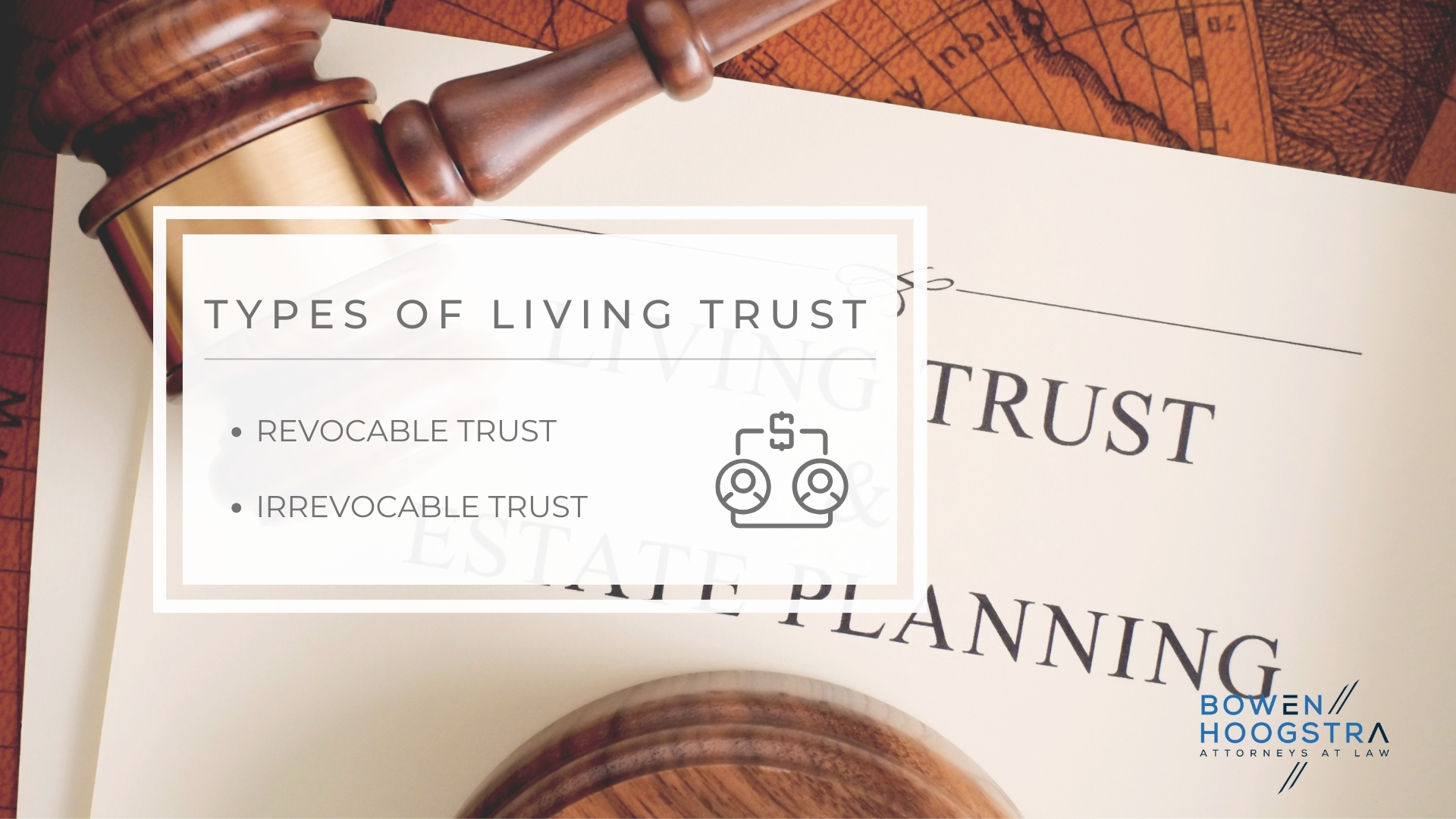Estate planning enables you to manage your hard-earned assets effectively. Having the right estate planning tool helps protect your properties and guarantees that your family will be taken care of even after you pass away.
As part of their estate planning strategy, property owners often employ a living trust to distribute assets to their chosen beneficiaries. Before getting one, you must first understand how it can benefit you.
Here, we’ll explain what a living trust is and discuss some of its advantages and disadvantages.
- What Is a Living Trust?
- Difference Between Living Trust and Will
- Pros and Cons of Living Trust
- Pros
- Cons
- Can You Have More Than One Living Trust in Michigan?
What Is a Living Trust?
A living trust is a legal document that permits you, the grantor, to entrust your assets to another person, the trustee. The trustee will manage the distribution of your estates to the intended beneficiaries once you pass away or become incapacitated.
A living trust can either be revocable or irrevocable:
Revocable Trust
A revocable trust allows you to revoke or amend the trust whenever you decide to. For example, you can change, add, or remove a beneficiary of your estate from your revocable trust.
Irrevocable Trust
An irrevocable trust is utilized when you are confident that you won’t alter any of the conditions stipulated in your living trust, including the recipients of your property.

Difference Between Living Trust and Will
If you want to ensure that your estates are appropriately allocated to the recipients of your choice, you can employ either a living trust or a will. Both legal documents allow you to choose the heirs of your property.
A will, however, is only enforceable after the grantor dies. The distribution of property also involves a probate process, which can be expensive and time-consuming. Alternatively, a living trust takes effect while you are still alive. A living trust will also make it much simpler and quicker to administer your assets because probate will not be necessary.
Pros and Cons of Living Trust
Though a living trust offers several benefits, it also has drawbacks. Before you decide whether to employ a living trust for your properties, you should know the pros and cons of having one. Here are some of them:
Pros
Probate Avoidance
Having a living trust makes it possible to avoid probate. When you have a living trust, your assets will be transferred to your trustee. The trustee will then manage your assets and distribute them to your designated beneficiaries. The allocated assets will no longer be under your name. As a result, probate won’t be required, saving time and resources.
Privacy
When an estate undergoes probate, the documents related to the probate case will become a public record. Anyone can access these documents, including the information on your assets and beneficiaries. However, probate does not happen when you have a living trust, allowing you to maintain privacy.
Legal Protection
Opting for a living trust provides you with legal protection for your assets. It will be difficult for someone to contest how your assets are distributed to your heirs. The trust contains all the necessary legal documents outlining your terms and conditions. Furthermore, you are still alive when your living trust is established, allowing you to refute any unreasonable claims.
Cons
Limited Coverage
Not all assets can be transferred to your trust. Certain assets, such as jointly owned properties and retirement plans, may require alternative legal means to reach your beneficiaries. Additionally, recently acquired assets won’t be added to your trust automatically. After your death, a probate will be necessary for the estates not covered by your living trust.
Cost
Setting up a living trust can be expensive. During the process, you need to transfer your assets to your living trust, including property titles. Transfer of titles will require additional documents and processing fees to make any ownership changes legal. However, you will be able to save money eventually since your estates will no longer be distributed through a probate process.
Can You Have More Than One Living Trust in Michigan?
Yes. You can have more than one living trust. Still, you first need to assess whether your circumstances necessitate you to create two or more trusts. While having multiple trusts can benefit some people, it may be unnecessary for others. For instance, having one living trust is enough if your intended beneficiaries are your immediate family members. However, if you have an heir with disabilities, having a separate special needs trust is sensible. Consulting a legal expert on living trust can help you decide which living trust option you should pursue.
Michigan Living Trust Lawyers
Opting for a living trust involves complicated legal procedures you might not be familiar with. Hiring a living trust attorney ensures that you choose the right living trust option that works best for you. Our living trust lawyers here at Bowen Hoogstra Law can provide you with legal assistance in establishing your Michigan living trust. For more legal inquiries, call us at (231) 726-4484. You can reach us here as well.

